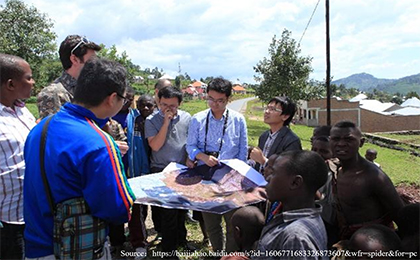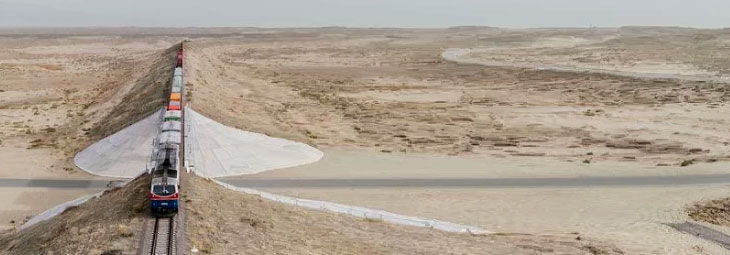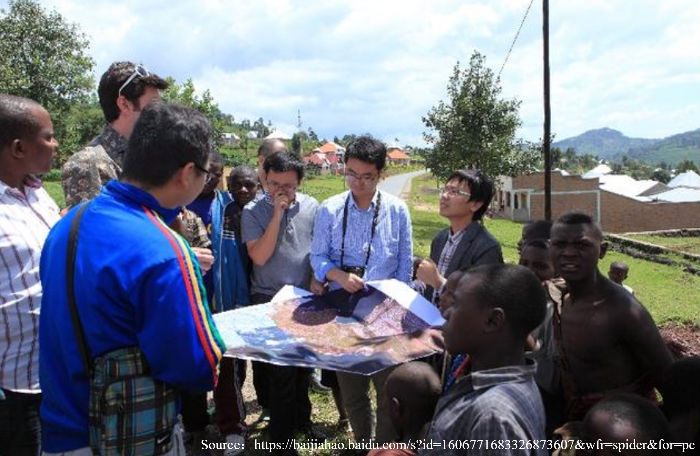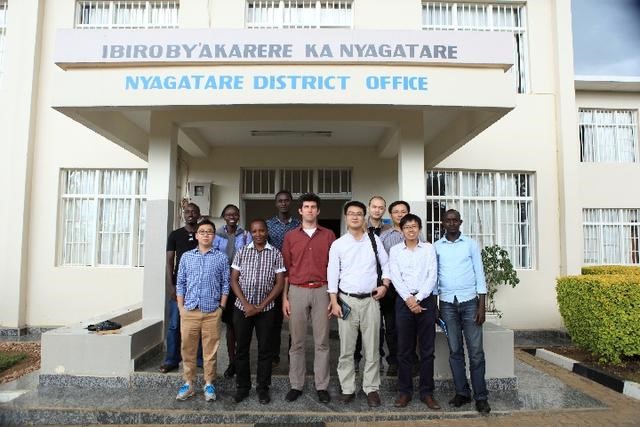



Source:https://baijiahao.baidu.com/s?id=1606771683326873607&wfr=spider&for=pc
Guangzhou, July 23,2018 (Xinhua) -- Every time Liu Wei sees the gorilla fridge magnet at home, he would think of his wonderful trip in the country of mountains and gorillas. 4 years ago, it took him, Wu Jie and several other colleagues more than 20 hours to reach their destination, Rubavu, in northwest Rwanda, from Guangzhou, China.
Liu Wei is a planner at the Guangzhou Urban Planning & Design Survey Research Institute (GZPI). In 2014, at the invitation of UN-Habitat, Liu and his colleagues drew up conceptual master plans for the Rwandan cities of Rubavu and Nyagatare to help local governments achieve "sustainable human settlements development".
Rwanda, located in east-central Africa, is known as the "land of a thousand hills" due to the hilly terrain. Seen from the airplane, Rwanda is worthy of the name for the rugged terrain, said Wu Jie.
Based on the preparation in the two months before their trip to Africa and the field investigation after the arrival, they found that the previous urban plannings in Rwanda emphasized the beauty of architectural forms and the perfection of functions, but lacked the overall consideration of urban development strategies and specific implementation paths to turn the planning into reality.

The group photo of urban planners from Guangzhou and experts of UN-Habitat in Nyagatare, Rwanda.
China is the largest developing country in the world, and what we have experienced most in the past 40 years is just urban development under difficult and complex conditions, Liu Wei said. We felt at the time that these experiences would help Rwanda improve its urban master planning framework and promote the local capacity of urban planning and management.
First, the project team and the Ministry of Infrastructure, Rwanda combed the state's planning system and formulated a four-level framework of "urban development strategy, structural master plan, neighborhood plan, implementation plan". The project team also proposed five recommendations for the urban development and management in Rwanda, which include more active government and simpler governance, providing basic living facilities for the people, developing local economy to provide employment opportunities, referring to China's experience to promote the early stage of industrialization, protecting green environmental resources, and building a city where people enjoy common prosperity.
These are regarded by the Rwandan government as "the best summary of China's development experience". Wu Jie said that during the discussion, the concept of "clear waters and green mountains are like gold and silver mountains", which is familiar to the Chinese, has also been widely endorsed by Rwandan people.
Under the specific development strategy of "respecting nature and existing farmland", three ecological landscape corridors were planned to be set up between the north and south of Rubavu to keep the migration path of animals unblocked. In Nyagatare, they planned to integrate volcanoes, lakes, rivers and hills to create a semi-artificial ecosystem where nature penetrates into the city.
During the field research, Wu Jie and his colleagues saw many plastic greenhouse trading markets on the border of Goma in DR Congo and Rubavu in Rwanda, where the border residents walk for hours to buy and sell daily necessities on their heads, with few convenient logistics.
Source:<https://baijiahao.baidu.com/s?id=1606771683326873607&wfr=spider&for=pc>
Translated by Zhao Shengbo